 W
WHumour or humor is the tendency of experiences to provoke laughter and provide amusement. The term derives from the humoral medicine of the ancient Greeks, which taught that the balance of fluids in the human body, known as humours, controlled human health and emotion.
 W
WAkanbe , also spelled Akkanbee , is a Japanese facial gesture indicating sarcasm but also used as a taunt. It consists of someone pulling down one's lower eyelid to expose the red underside towards someone, often accompanied by the person sticking their tongue out. It is considered an immature taunting gesture.
 W
WAmusement, from the old French à muser – to put into a stupid stare, is the state of experiencing humorous and entertaining events or situations while the person or animal actively maintains the experience, and is associated with enjoyment, happiness, laughter and pleasure. It is an emotion with positive valence and high physiological arousal.
 W
WAnti-Barney humor is a form of humor that targets the main character Barney the Dinosaur from the children's television series Barney & Friends and singles out the show for criticism.
 W
WAn anti-proverb or a perverb is the transformation of a standard proverb for humorous effect. Paremiologist Wolfgang Mieder defines them as "parodied, twisted, or fractured proverbs that reveal humorous or satirical speech play with traditional proverbial wisdom". Anti-proverbs are ancient, Aristophanes having used one in his play Peace, substituting κώẟων 'bell' for κύων 'bitch, female dog', twisting the standard and familiar "The hasty bitch gives birth to blind" to "The hasty bellfinch gives birth to blind".
 W
WA comparison of apples and oranges occurs when two items or groups of items are compared that cannot be practically compared.
 W
WBlack comedy, also known as black humor, dark humor, dark comedy, morbid humor, or gallows humor, is a style of comedy that makes light of subject matter that is generally considered taboo, particularly subjects that are normally considered serious or painful to discuss. Writers and comedians often use it as a tool for exploring vulgar issues by provoking discomfort, serious thought, and amusement for their audience. Thus, in fiction, for example, the term black comedy can also refer to a genre in which dark humor is a core component. Popular themes of the genre include death, violence, discrimination, disease, and human sexuality.
 W
WBoard of Inland Revenue v Haddock is a fictitious legal case written by the humorist A. P. Herbert for Punch magazine as part of his series of Misleading Cases in the Common Law. It was first published in book form in More Misleading Cases in the Common Law. The case evolved into an urban legend.
 W
WA burlesque is a literary, dramatic or musical work intended to cause laughter by caricaturing the manner or spirit of serious works, or by ludicrous treatment of their subjects. The word derives from the Italian burlesco, which, in turn, is derived from the Italian burla – a joke, ridicule or mockery.
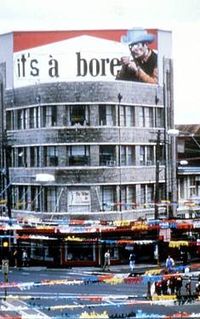 W
WA détournement, meaning "rerouting, hijacking" in French, is a technique developed in the 1950s by the Letterist International, and later adapted by the Situationist International (SI), that was defined in the SI's inaugural 1958 journal as "[t]he integration of present or past artistic productions into a superior construction of a milieu. In this sense there can be no situationist painting or music, but only a situationist use of those means. In a more elementary sense, détournement within the old cultural spheres is a method of propaganda, a method which reveals the wearing out and loss of importance of those spheres."
 W
WO novo guia da conversação em portuguez e inglez, commonly known by the name English as She Is Spoke, is a 19th-century book written by Pedro Carolino, with some editions crediting José da Fonseca as a co-author. It was intended as a Portuguese–English conversational guide or phrase book; however, as the "English" translations provided are usually inaccurate or incoherent, it is regarded as a classic source of unintentional humour in translation.
 W
W"The Tale of Eric and the Dread Gazebo" is a role-playing game-inspired anecdote, made famous by Richard Aronson. Aronson's account first appeared in print in the APA Alarums and Excursions between 1985 and 1986. It was reprinted in Mensa's RPG APA The Spell Book in 1987, and The Mensa Bulletin in 1988. It subsequently spread to the internet where it has been frequently retold and adapted as short stories and comics. The story, as it was originally published, was titled "Eric and the Gazebo" but many retellings inserted the word 'Dread' in the title.
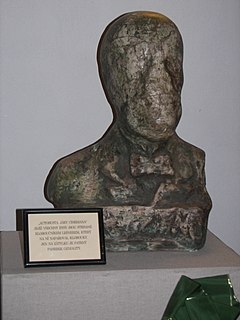 W
WExternism is a fictional philosophical theory proposed by the fictional Czech genius Jára Cimrman. This character appears in many plays by authors from the Jára Cimrman Theatre in Prague. The first act of the theatre performances is usually filled with a lecture on Cimrman's personality, followed by a theatrical play. The theory of externism is described in a monologue by a Cimrmanologist having a lecture on Jára Cimrman's significance in the field of philosophy in the first act of the theatre play Akt by Zdeněk Svěrák, Ladislav Smoljak and Jiří Šebánek.
 W
WFart lighting also known as pyroflatulence flatus ignition or fire breathing dragon is the practice of igniting the gases produced by human flatulence often producing a flame of a blue hue hence the act being known colloquially as a "blue angel", "blue dart" or in Australia, a "blue flame". The fact that flatus is flammable and the actual combustion of it through this practice gives rise to much humorous derivation. Other colors of flame such as orange and yellow are possible with the color dependent on the mixture of gases formed in the colon. In order to "fire fart" one must have a fart prepared in the rectum and a lighter at the ready. Then they fart onto the lighter.
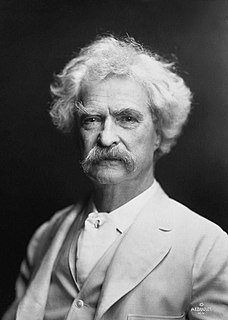 W
WA humorist (American) or humourist is an intellectual who uses humor, or wit in writing or public speaking, but is not an artist who seeks only to elicit laughs. Humorists are distinct from comedians, who are show business entertainers whose business is to make an audience laugh. It is possible to play both roles in the course of a career.
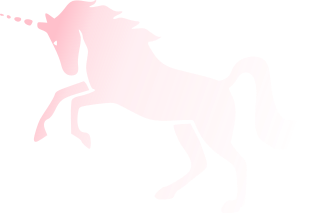 W
WThe Invisible Pink Unicorn (IPU) is the goddess of a parody religion used to satirize theistic beliefs, taking the form of a unicorn that is paradoxically both invisible and pink. She is a rhetorical illustration used by atheists and other religious skeptics as a contemporary version of Russell's teapot, sometimes mentioned in conjunction with the Flying Spaghetti Monster.
 W
WIrony, in its broadest sense, is a rhetorical device, literary technique, or event in which what on the surface appears to be the case or to be expected differs radically from what is actually the case.
 W
WA joke is a display of humour in which words are used within a specific and well-defined narrative structure to make people laugh and is usually not meant to be taken seriously. It takes the form of a story, usually with dialogue, and ends in a punch line. It is in the punch line that the audience becomes aware that the story contains a second, conflicting meaning. This can be done using a pun or other word play such as irony or sarcasm, a logical incompatibility, nonsense, or other means. Linguist Robert Hetzron offers the definition:A joke is a short humorous piece of oral literature in which the funniness culminates in the final sentence, called the punchline… In fact, the main condition is that the tension should reach its highest level at the very end. No continuation relieving the tension should be added. As for its being "oral," it is true that jokes may appear printed, but when further transferred, there is no obligation to reproduce the text verbatim, as in the case of poetry.
 W
WLi's Field is a tongue-in-cheek conspiracy theory in Hong Kong over the existence of a force field that repels tropical cyclones from the city.
 W
WManualism is the art of playing music by squeezing air through the hands. Because the sound produced has a distinctly flatulent tone, such music is usually presented as a form of musical comedy or parody. The musical performer is called a manualist, who may perform a cappella or with instrumental accompaniment.
 W
W"Peri Bathous, Or the Art of Sinking in Poetry" is a short essay by Alexander Pope published in 1728. The aim of the essay is to ridicule contemporary poets.
 W
WThe Pocket Book of Boners is a book illustrated by Theodor Seuss Geisel, originally published as four separate books in 1931–32 by The Viking Press. In 1941, Readers' League of America compiled these four books and published the Pocket Book of Boners. It was one of the bestselling paperback books of World War II, with 1.34 million copies in print by 1945. At the time of its writing, the term "boner" was not commonly used to mean an erection, with sexual connotation, but rather as a term meaning "silly mistake".
 W
WTo be ridiculous is to be something which is highly incongruous or inferior, sometimes deliberately so to make people laugh or get their attention, and sometimes unintendedly so as to be considered laughable and earn or provoke ridicule and derision. It comes from the 1540s Latin "ridiculosus" meaning "laughable", from "ridiculus" meaning "that which excites laughter", and from "ridere" meaning "to laugh". "Ridiculous" is an adjective describing "the ridiculous".
 W
WSatire is a genre of literature and performing arts, usually fiction and less frequently in non-fiction, in which vices, follies, abuses and shortcomings are held up to ridicule, ideally with the intent of shaming individuals, corporations, government, or society itself into improvement. Although satire is usually meant to be humorous, its greater purpose is often constructive social criticism, using wit to draw attention to both particular and wider issues in society.
 W
WSelf-referential humor, also known as self-reflexive humor or meta humor, is a type of comedic expression that—either directed toward some other subject, or openly directed toward itself—intentionally alludes to the very person who is expressing the humor in a comedic fashion, or to some specific aspect of that same comedic expression. Self-referential humor expressed discreetly and surrealistically is a form of bathos. In general, self-referential humor often uses hypocrisy, oxymoron, or paradox to create a contradictory or otherwise absurd situation that is humorous to the audience.
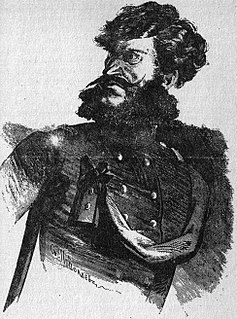 W
WIn its original sense, a shaggy dog story or yarn is an extremely long-winded anecdote characterized by extensive narration of typically irrelevant incidents and terminated by an anticlimax.
 W
WSlapping the Table in Amazement is a collection of vernacular short stories, written by Ling Mengchu (1580–1644). It was composed in the middle of the 17th century during the end of Ming Dynasty. It involves 78 stories in all and is divided into two parts: the first and the second Chinese: 二拍. There are forty stories in each part. Slapping the Table in Amazement contains many different stories, such as folk legends, romances and unofficial history.
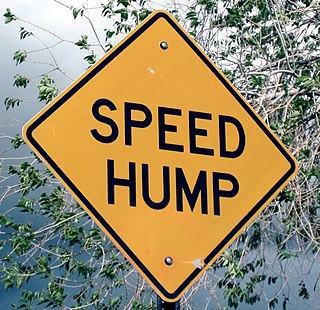 W
WSophomoric humor is that which is juvenile and puerile. It is a type of comedy that often includes toilet humor and gags that are based on an appeal to a silly sense of immaturity. The word sophomoric, an adjective dating from 1813, is used to refer to and describe something or someone that is conceited, overconfident, poorly informed and immature, as characterized by a stereotypical sophomore. The phrase can be derisive, but is also used to refer to a style or vein of comedic act.
 W
WSpoiled Rotten America is a 2006 humor book written by actor, voice artist, comedian, podcaster, and columnist Larry Miller. The book, originally published by ReganBooks, is a collection of seventeen comic essays. The audiobook version, narrated by the author, won the 2007 Audie Award for Humor.
 W
WStand-up comedy is a comedy performance and narrative craft whereby a comedian communicates to a live audience, speaking directly to them through a microphone. The performer is commonly known as a comic, stand-up comic, comedian, comedienne, stand-up comedian, or simply a stand-up. Comedians give the illusion that they are dialoguing, but in actuality, they are monologuing a grouping of humorous stories, jokes and one-liners, typically called a shtick, routine, act, or set. Stand-ups may fuse props, music, magic tricks or ventriloquism. Stand-up comedians perform quasi-autobiographical and fictionalized extensions of their offstage selves.
 W
WToilet humour, or potty or scatological humour, is a type of off-colour humour dealing with defecation, urination and flatulence, and to a lesser extent vomiting and other bodily functions. It sees substantial crossover with sexual humour, such as dick jokes.
 W
WTurkey bowling is a sport which is based on ordinary bowling: a frozen turkey serves as a bowling ball and 10 plastic bottles of soft drinks or water are the bowling pins. The turkey is bowled down a smooth surface, for example, ice or a soap covered sheet of painters plastic. It is commonly associated with Thanksgiving.
 W
WVictorian burlesque, sometimes known as travesty or extravaganza, is a genre of theatrical entertainment that was popular in Victorian England and in the New York theatre of the mid-19th century. It is a form of parody in which a well-known opera or piece of classical theatre or ballet is adapted into a broad comic play, usually a musical play, usually risqué in style, mocking the theatrical and musical conventions and styles of the original work, and often quoting or pastiching text or music from the original work. Victorian burlesque is one of several forms of burlesque.
 W
WIn comedy, a visual gag or sight gag is anything which conveys its humour visually, often without words being used at all. The gag may involve a physical impossibility or an unexpected occurrence. The humor is caused by alternative interpretations of the goings-on. Visual gags are used in magic, plays, and acting on television or movies.
 W
WA visual pun is a pun involving an image or images, often based on a rebus.
 W
WWellerisms, named after sayings of Sam Weller in Charles Dickens's novel The Pickwick Papers, make fun of established clichés and proverbs by showing that they are wrong in certain situations, often when taken literally. In this sense, Wellerisms that include proverbs are a type of anti-proverb. Typically a Wellerism consists of three parts: a proverb or saying, a speaker, and an often humorously literal explanation.
 W
WThe Whitehall farces were a series of five long-running comic stage plays at the Whitehall Theatre in London, presented by the actor-manager Brian Rix, in the 1950s and 1960s. They were in the low comedy tradition of British farce, following the Aldwych farces, which played at the Aldwych Theatre between 1924 and 1933.
 W
WWit is a form of intelligent humour, the ability to say or write things that are clever and usually funny. Someone witty is a person who is skilled at making clever and funny remarks. Forms of wit include the quip, repartee, and wisecrack.
 W
WThe Zombie Bike Ride is a celebration of the bicycle on last week of October in Key West, Florida. Rock and roll, zombie bikes and costumes of all types and a one-mile leisurely ride along the Atlantic Ocean.
 W
W